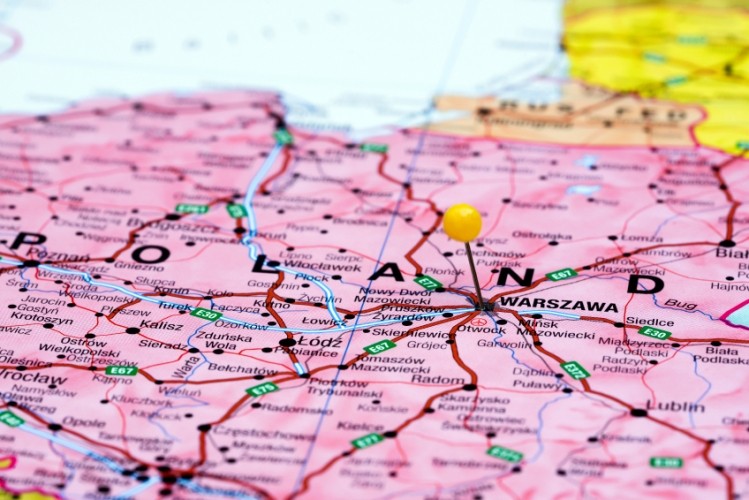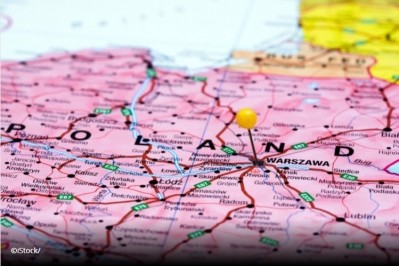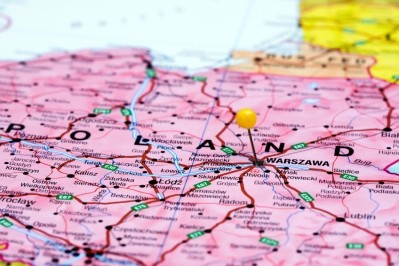Solgar Polska under investigation by Polish authorities over supplement price-fixing

In a search conducted at the company’s Polish headquarters, UOKiK obtained evidence pointing to Solgar Polska’s intentions to set minimal resale prices of dietary supplements with its retailers, preventing consumers from purchasing them for a lower price.
The authority accuse company representatives of requesting retailers adjust their prices, then denying them the possibility of ordering supplements on preferential terms. In some cases, the firm terminated cooperation agreements.
“UOKiK pays special attention to the protection of competition in dynamically developing markets, such as the dietary supplements market,” said Michał Holeksa, UOKiK’s vice president.
“We have initiated proceedings against Solgar Polska. We also brought charges against two managers from that company, who could be directly responsible for the findings in question.”
Solgar, which operates as a subsidiary of The Nature's Bounty Co, responded to the accusations stating that, “Solgar Polska is an independent third party distributor of Solgar products, and is not an affiliate of Solgar, Inc. or The Nature’s Bounty Co.
“We are not aware of any issues with Solgar Polska’s pricing practices, nor have we been involved in any UOKiK investigation of this distributor.“
Solgar Polska's in-house lawyer Tomasz Krawczyk said,"Solgar Polska has been informed that Poland’s Office of Competition and Consumer Protection (UOKiK) initiated proceedings against the company’s related potential food supplement price-fixing practices.
"As one of the local representatives of the Solgar brand in Poland, we cooperate with the governmental authorities with maximum transparency.
"We are currently working on a reply to the authorities’ position and strongly believe that our approach and reasoning will be well received by the Office.
"The distribution system used by Solgar Polska is reflected in the existing partners’ agreements and has not been questioned by the Office of Competition and Consumer Protection."
Anti-monopoly law
Further details of Solgar Polska’s practices, which UOKiK say may have started in 2010, include claims that retailers themselves observed their rates and informed Solgar Polska if any of them used lower prices.
Anti-monopoly law prohibits setting minimum or fixed resale prices by entrepreneurs operating at various levels of trade, such as a producer-wholesaler or distributor-seller,” warned the President of UOKiK, Marek Niechciał.
“While suggesting prices is permissible, sellers must be free to shape their own pricing policy. In the case of Solgar Poland, however, it could have been different. Prices could only be suggested on paper, while in practice retailers could not sell supplements at lower prices.”
Solgar Polska responded by adding, "Our price lists clearly included permitted suggested retail prices. Solgar tracked the prices of distributed products and relevant information was previously submitted to the OCCP.
"However, this was done not to enforce minimum resale prices, but to create a system of selective distribution which would require distributors to guarantee high-quality consumer service.
"According to this system, distributors undertook a number of duties, including a duty to participate in training sessions and to provide consumers with specialist advice on the choice of products.
"Solgar’s system of selective distribution was presented at meetings with partners and is reflected in agreements remaining in force. It is a lawful system which the OCCP did not challenge.
"Our comparison of publicly available prices of Solgar products offered by our distributors and their sale prices has revealed that the pricing policy applied by our distributors generated margins that were largely in line with the market average for food supplements standing at approximately 29%.
"In addition, parallel distributors of Solgar products are also active on the Polish market, meaning that there is price competition on the market."
Companies that take part in fraudulent schemes are liable to a fine equivalent to 10% of its turnover, said UOKiK adding that any managers implicated in such a scheme may be fined up to €466,000.
As the practice in question could have an impact on trade between EU countries, the Office emphasises it conducts proceedings in connection with the violation of both Polish and EU regulations.
Polish supplement industry
According to The PAP Press Center, a report by Polish supplement firm Cheers, found more than 70% of Poles take dietary supplements, with over 50% taking them every day.
Financial and business website, Bankier.pl state that in 2018, the value of the Polish market exceeded €1bn (PLN4.5bn) with predictions of the market’s value set to reach €1.2bn (PLN5bn) in 2020.
Poland’s main independent state audit body, The Supreme Audit Office (NIK) released a report in 2017 pointing to the Polish market as being vulnerable to unfair market practices that go against consumer interests.
“In countries with established market practices, abuses prevent self-limitation of producers and importers in terms of unfair practices,” the report said.
“In Poland, proposals for such self-limitation by producers appeared only during the NIK audit.”















